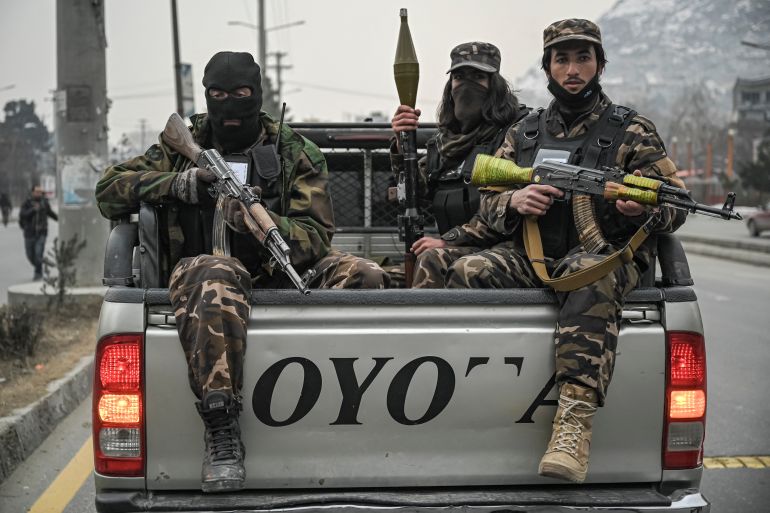Taliban killed dozens of former Afghan officials: UN report
A new UN report finds that more than 100 former Afghan government and coalition members have been killed since the Taliban takeover.

More than 100 former members of the Afghan government, its security forces and those who worked with international troops have been killed since the Taliban took over the country in August, according to a report by the United Nations.
UN Secretary-General Antonio Guterres said in Sunday’s report addressed to the UN Security Councilthat “more than two-thirds” of the victims were allegedly killed extrajudicially by the Taliban or its affiliates.
Keep reading
list of 3 itemsIn Afghanistan, Taliban diktat sparks debate about women’s attire
Afghanistan’s economy is collapsing, the US can help stop it
“Despite announcements of general amnesties for former members of the Government, security forces and those who worked with international military forces, [the United Nations Assistance Mission in Afghanistan] UNAMA continued to receive credible allegations of killings, enforced disappearances, and other violations” against former government and coalition members, the report said.
The UN mission documented 44 cases of temporary arrests, beatings and threats of intimidation, 42 of them by the Taliban.
It also received “credible allegations of extrajudicial killings of at least 50 individuals suspected of affiliation with ISIL-KP”, the ISIL affiliate operating in Afghanistan, according to the report.
Eight civil society activists were killed, including three by the Taliban and three by the ISIL-affiliated ISKP (ISIL-KP or ISIS-K), and 10 were subjected to temporary arrests, beatings and threats by the Taliban.
Two journalists were also killed, one by ISKP, and two were injured by unknown armed men.
The Taliban initially promised a general amnesty for those linked to the former government and international forces, and tolerance and inclusiveness towards women and ethnic minorities.
However, the group has renewed restrictions on women and appointed an all-male government, actions met with dismay by the international community.
Guterres said human rights defenders and media workers also continue “to come under attack, intimidation, harassment, arbitrary arrest, ill-treatment and killings”.
“The situation in Afghanistan remains precarious and uncertain six months after the Taliban takeover as the multiple political, socio-economic and humanitarian shocks reverberate across the country,” the UN secretary-general added.
An estimated 22.8 million people are projected to be in “crisis” and “emergency” levels of food insecurity by March 2022, according to UN estimates. Half of all children under five are facing acute malnutrition.
The Taliban’s acting higher education minister said on Sunday that public universities, closed since the Taliban seized power in August, will reopen in February. He did not specify whether female students would be able to return. Earlier this month, a senior Taliban leader pledged girls of all ages will return to school by the end of March.
So far, the Taliban government has reopened high schools for boys only in most of the country. Some private universities have reopened, but in many cases, female students have not been able to return to class.